Filter by
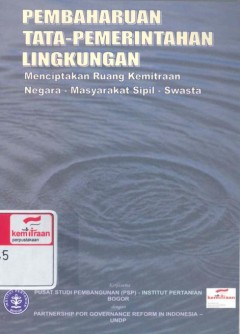
Pembaharuan tata pemerintahan lingkungan : menciptakan ruang kemitraan negara…
- Edition
- 1st print
- ISBN/ISSN
- 979-8637-28-3
- Collation
- xii, 247p.; 21 cm
- Series Title
- -
- Call Number
- 333.7, DHA, p
- Edition
- 1st print
- ISBN/ISSN
- 979-8637-28-3
- Collation
- xii, 247p.; 21 cm
- Series Title
- -
- Call Number
- 333.7, DHA, p
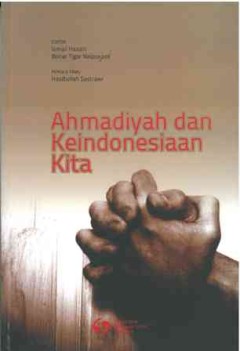
Ahmadiyah dan Keindonesiaan Kita
- Edition
- -
- ISBN/ISSN
- 978-602-99042-3-9
- Collation
- vi, 196p.; 23 cm
- Series Title
- -
- Call Number
- 297.83 HAS a
- Edition
- -
- ISBN/ISSN
- 978-602-99042-3-9
- Collation
- vi, 196p.; 23 cm
- Series Title
- -
- Call Number
- 297.83 HAS a
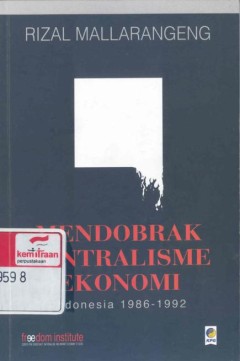
Mendobrak sentralisme ekonomi Indonesia 1986-1992
- Edition
- 2nd print
- ISBN/ISSN
- 979-9023-71-8
- Collation
- xxxviii, 268p.; 21 cm
- Series Title
- -
- Call Number
- 330.959 8, MAL, m
- Edition
- 2nd print
- ISBN/ISSN
- 979-9023-71-8
- Collation
- xxxviii, 268p.; 21 cm
- Series Title
- -
- Call Number
- 330.959 8, MAL, m
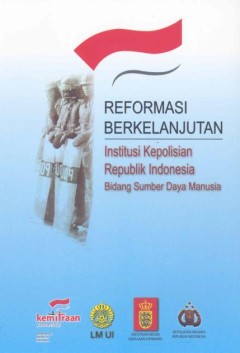
Reformasi berkelanjutan : institusi polisi Republik Indonesia bidang sumber d…
- Edition
- -
- ISBN/ISSN
- 979-26-9605-9
- Collation
- vii, 154p.; 21 cm
- Series Title
- -
- Call Number
- 363.2, LEM, r
- Edition
- -
- ISBN/ISSN
- 979-26-9605-9
- Collation
- vii, 154p.; 21 cm
- Series Title
- -
- Call Number
- 363.2, LEM, r
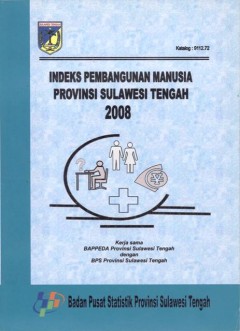
Indeks Pembangunan Manusia provinsi Sulawesi Tengah 2008
- Edition
- -
- ISBN/ISSN
- -
- Collation
- viii, 90p.; 25 cm
- Series Title
- -
- Call Number
- BPS-2005-HDI.3
- Edition
- -
- ISBN/ISSN
- -
- Collation
- viii, 90p.; 25 cm
- Series Title
- -
- Call Number
- BPS-2005-HDI.3
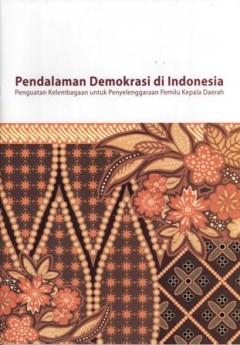
Pendalaman demokrasi di Indonesia: penguatan kelembagaan untuk penyelenggaraa…
Policy brief berikut ini dilakukan oleh Election Multi Donor Project (E-MDP) dan merupakan sebuah hasil dari proses panjang yang dimulai tahun 2008. Policy ini didasarkan atas laporan-laporan dan hasil penelitian yang membahas pemilu kepala daerah (PEMILUKADA) di Indonesia dan merangkum tantangan-tantangan yang terdapat dalam administrasi Pemilukada tersebut. Berbeda dengan studi-studi lainnya …
- Edition
- -
- ISBN/ISSN
- -
- Collation
- viii, 40p.; 30 cm
- Series Title
- -
- Call Number
- 324, HIL, p
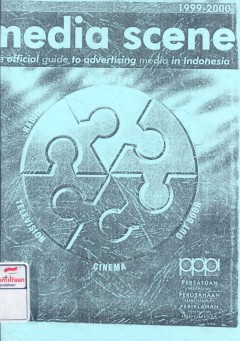
Media scene : the official guide to advertising media in Indonesia 1999-2000
- Edition
- -
- ISBN/ISSN
- -
- Collation
- 177p.; 30 cm
- Series Title
- -
- Call Number
- R659.1, PER, m
- Edition
- -
- ISBN/ISSN
- -
- Collation
- 177p.; 30 cm
- Series Title
- -
- Call Number
- R659.1, PER, m
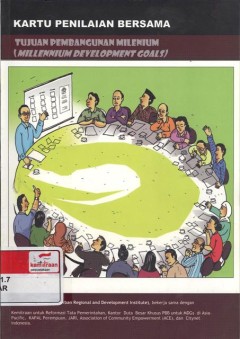
Kartu penilaian bersama tujuan pembangunan milenium [millennium development g…
Tersedia berupa CD.
- Edition
- 1st print
- ISBN/ISSN
- -
- Collation
- 61p.; 30cm
- Series Title
- -
- Call Number
- 361.7, SAR, k
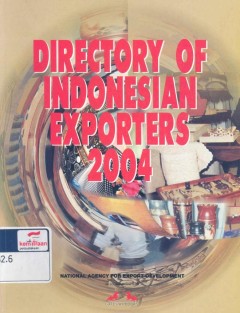
Directory of Indonesian exporters 2004
- Edition
- -
- ISBN/ISSN
- 0-921333-94-3
- Collation
- 256p.: ill, ; 28 cm
- Series Title
- -
- Call Number
- R382.6, DIR, d
- Edition
- -
- ISBN/ISSN
- 0-921333-94-3
- Collation
- 256p.: ill, ; 28 cm
- Series Title
- -
- Call Number
- R382.6, DIR, d
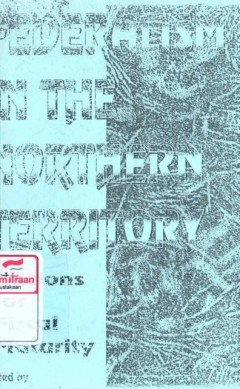
Federalism in the Northern territory : options for fiscal maturity
- Edition
- -
- ISBN/ISSN
- 0-73152545-0
- Collation
- v, 105p.; 21 cm
- Series Title
- -
- Call Number
- 336, FLE, f
- Edition
- -
- ISBN/ISSN
- 0-73152545-0
- Collation
- v, 105p.; 21 cm
- Series Title
- -
- Call Number
- 336, FLE, f
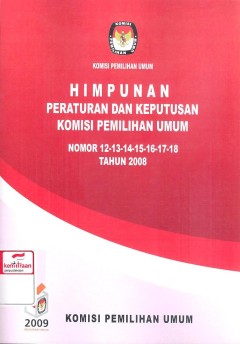
Himpunan Peraturan Dan Keputusan Komisi Pemilihan Umum Nomor 12-13-14-15-16-1…
- Edition
- -
- ISBN/ISSN
- -
- Collation
- -
- Series Title
- Peraturan Pemilihan Umum
- Call Number
- R324 KOM h
- Edition
- -
- ISBN/ISSN
- -
- Collation
- -
- Series Title
- Peraturan Pemilihan Umum
- Call Number
- R324 KOM h
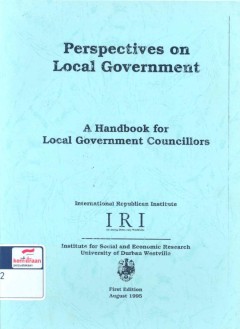
Perspectives on local government : a handbook for local government councillors
- Edition
- 1st ed.
- ISBN/ISSN
- -
- Collation
- 242p.; 29 cm
- Series Title
- -
- Call Number
- R352, INT, p
- Edition
- 1st ed.
- ISBN/ISSN
- -
- Collation
- 242p.; 29 cm
- Series Title
- -
- Call Number
- R352, INT, p
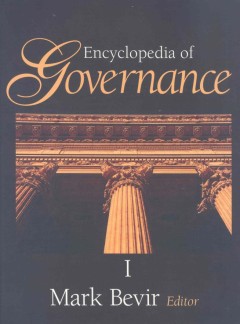
Encyclopedia of governance : volume 1 dan volume 2
The Encyclopedia of Governance provides a one-stop point of reference for the diverse and complex topics surrounding governance for the period between the collapse of the postwar consensus and the rise of neoliberal regimes in the 1970s. This comprehensive resource concentrates primarily on topic related to the changing nature and role of the state in recent times and the ways in which these ro…
- Edition
- vol. 1 vol. 2
- ISBN/ISSN
- 1-4129-0579-6
- Collation
- vol. 1.; xxxviii, illus, 70 index, 506p.; 28 cm ;
- Series Title
- -
- Call Number
- R354, BEV, e
Mencuri uang rakyat : 16 kajian korupsi di Indonesia : Buku 2 : pesta tentara…
- Edition
- -
- ISBN/ISSN
- 979-3093-02-1
- Collation
- xv, 135p.; 18 cm
- Series Title
- -
- Call Number
- 364.132 3, HOL, m
- Edition
- -
- ISBN/ISSN
- 979-3093-02-1
- Collation
- xv, 135p.; 18 cm
- Series Title
- -
- Call Number
- 364.132 3, HOL, m

Membangun budaya polisi Indonesia: mencari strategi, format dan paradigma bar…
- Edition
- -
- ISBN/ISSN
- -
- Collation
- viii, 36p.; 21 cm
- Series Title
- -
- Call Number
- 363.2, KEL, m
- Edition
- -
- ISBN/ISSN
- -
- Collation
- viii, 36p.; 21 cm
- Series Title
- -
- Call Number
- 363.2, KEL, m

Praktik brutalitas polisi di masa transisi Indonesia
- Edition
- -
- ISBN/ISSN
- -
- Collation
- 28p.; 18 cm
- Series Title
- -
- Call Number
- 363.2 IMP p
- Edition
- -
- ISBN/ISSN
- -
- Collation
- 28p.; 18 cm
- Series Title
- -
- Call Number
- 363.2 IMP p

Summary Nationally Determined Contribution (NDC) and Its Progress of Implemen…
- Edition
- -
- ISBN/ISSN
- -
- Collation
- 49p.; 21 cm
- Series Title
- -
- Call Number
- 333.7 IND s
- Edition
- -
- ISBN/ISSN
- -
- Collation
- 49p.; 21 cm
- Series Title
- -
- Call Number
- 333.7 IND s

Strategy for Implementation of NDC (Nationally Determined Contribution)
- Edition
- -
- ISBN/ISSN
- 978602741167
- Collation
- viii, 23p.; 21 cm
- Series Title
- -
- Call Number
- 333.7 RAC s
- Edition
- -
- ISBN/ISSN
- 978602741167
- Collation
- viii, 23p.; 21 cm
- Series Title
- -
- Call Number
- 333.7 RAC s

Memoar Sarwono Kusumaatmaja: menapak koridor tengah
- Edition
- -
- ISBN/ISSN
- 9786024124441
- Collation
- xxii, 290p.; 23 cm
- Series Title
- -
- Call Number
- 920 KUS m
- Edition
- -
- ISBN/ISSN
- 9786024124441
- Collation
- xxii, 290p.; 23 cm
- Series Title
- -
- Call Number
- 920 KUS m

SOUP Lezat Usaha Hebat: mengelola usaha dengan kunci keseimbangan
- Edition
- -
- ISBN/ISSN
- 9789792969191
- Collation
- xvi, 224p.; 24,5 cm
- Series Title
- -
- Call Number
- 568 WIB s
- Edition
- -
- ISBN/ISSN
- 9789792969191
- Collation
- xvi, 224p.; 24,5 cm
- Series Title
- -
- Call Number
- 568 WIB s
 Computer Science, Information & General Works
Computer Science, Information & General Works  Philosophy & Psychology
Philosophy & Psychology  Religion
Religion  Social Sciences
Social Sciences  Language
Language  Pure Science
Pure Science  Applied Sciences
Applied Sciences  Art & Recreation
Art & Recreation  Literature
Literature  History & Geography
History & Geography